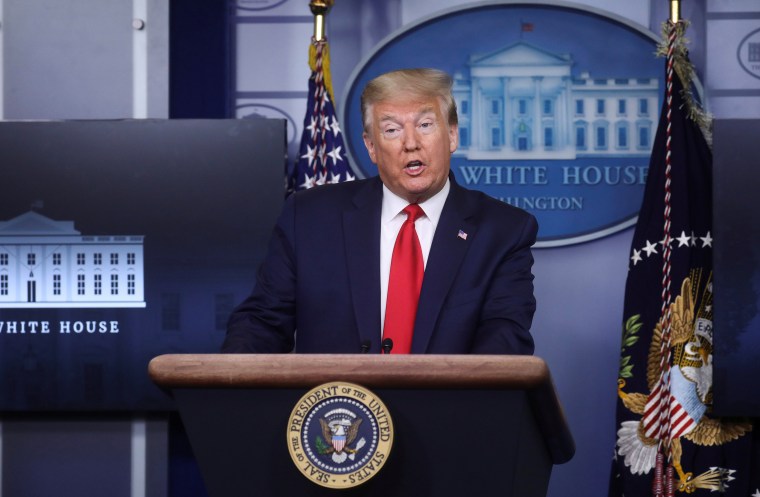There are slightly different tallies of the number of Americans killed by COVID-19, though as of this minute, NBC News' total currently points to a death toll of 99,716. Based on NIH and CDC assessments, the reported numbers are likely too low, but even putting those questions aside for now, we're likely to see the United States cross the 100,000-death threshold this afternoon.
There's no shortage of relevant angles to such a gut-wrenching development, but the New York Times had a report over the weekend that included a tidbit that stood out for me.
In late February, [Trump] said there were only 15 coronavirus cases in the United States, understating even then the actual number, and declared that "the 15 within a couple of days is going to be down to close to zero." In the annals of the American presidency, it would be hard to recall a more catastrophically wrong prediction. Even after he later acknowledged that it would not be zero, he insisted the death toll would fall "substantially below the 100,000" mark.
For the most part, the president seems eager to talk about anything but the staggering number of fatalities in his own country. It's probably why Trump has spent the last few days focusing his attention on "Obamagate" (a made-up controversy he still can't explain), attacking voting rights, and accusing an MSNBC host of being a murderer.
When you've made one of the most "catastrophically wrong" predictions in "the annals of the American presidency," such a public-relations strategy probably seems appealing.
That said, Trump has argued that he deserves credit for his coronavirus-related successes. In a tweet over Memorial Day weekend, for example, the president said he "banned, in late January, people coming in from China." In the next sentence, he added that the United States "let in 44,000 people" from China after he imposed the so-called "ban."
How did Trump resolve the contradiction? He didn't even acknowledge it. Similarly, the president failed to note that the travel restrictions came in February, not January, and that the United States was roughly the 38th country -- not the first -- to take such a step.
And yet, there was the president again this morning, insisting he imposed a so-called "ban" -- the one that came with 44,000 exceptions -- "long before anybody thought necessary."
That'd be easier to believe, if dozens of other countries hadn't already acted beforehand.
Complicating matters, Trump's decision wasn't entirely his own. A Washington Post report noted over the holiday weekend, "[W]hile the president has depicted that decision as one he made before anyone else recognized it was necessary, in reality major airlines were forcing his hand."
The article added, "Delta and American had announced on Jan. 31 they were suspending routes to China before Trump announced the restrictions. United informed the White House it had already decided to do the same but was willing to hold off on announcing it publicly if Trump was prepared to act swiftly in issuing an order, officials said. Eager to claim credit for acting to contain the virus, Trump's announcement came within hours."
As we reach the 100,000-death threshold, the president has so much to answer for -- his mismanagement, his tragically false predictions, his obvious lies, his repeated failures -- and so little to offer in response. Even the one talking point he clings to like a life-preserver fails to stand up to scrutiny.
